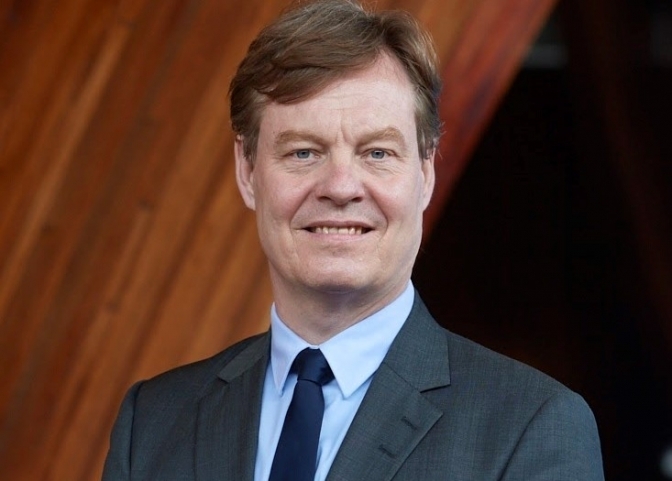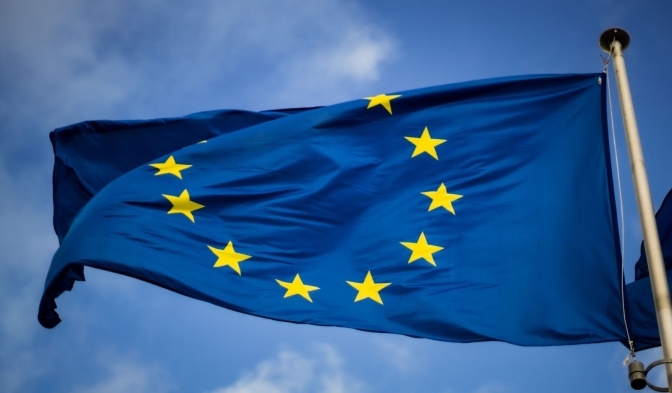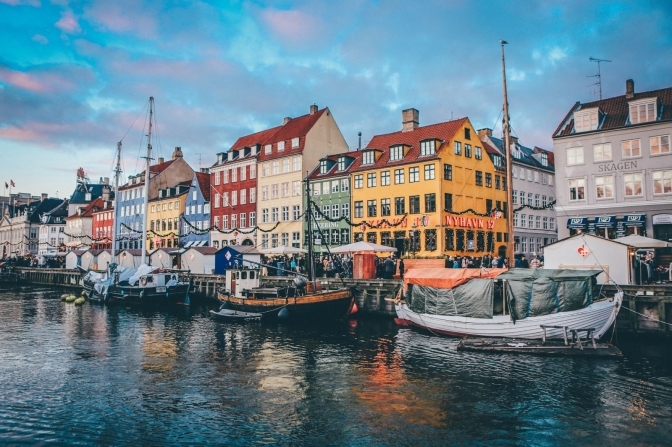
Steen Norløv
Whatever negative news there might be, Steen Nørlov, the head of the Council of Europe’s office in Kyiv, is confident in the progress and direction of democratic reform in Ukraine. To illustrate this, he recalled the legend of Odysseus, the mythical Greek whom some scholars think, in Homer’s epic poem, visited what is now the Ukrainian city of Mykolaiv.
«If you remember,» Nørlov said during our interview at the LV Café jazz club, «Odysseus did all the wrong things and therefore his journey became very long and when he came to the Sirens he did listen to them, but he also got his men to tie him to the mast and put wax in their ears and so he passed. And that is a little bit the same thing: No matter what happens [in Ukraine] the direction seems to be the same.»
Some observers and activists–as Lviv Now reported last week–have lately been worried about the direction of Ukraine. In late June, Kyiv withdrew its name from a Canada-led effort of more than 40 nations questioning whether the communist governmernt in Beijing is oppressing the Muslim Uyghur people in northwest China. Days later, Kyiv agreed to a major infrastructure deal with Beijing.
Nørlov, whose job is to monitor and advise on democratic reforms and human rights here, said he couldn’t comment on such a political situation but he does believe that Ukraine’s Euro-Atlantic direction is «entrenched»: «[Ukrianians] have made a decision. It’s quite clear that there was this [decision] in ‘14. I think everyone was quite surprised at what happened, the third time Maidan was mobilized.»
He was referring to the 2014 Euromaidan Revolution, also known as the Revolution of Dignity, when masses of Ukrainians stood for months in the main square, the maidan, of Kyiv–and other cities. In February 2014, President Yanukovich fled to Moscow, and a new era dawned.

The European flag. Christian Lue on Unsplash
«By changing the constitution and writing the Euro-Atlantic direction into there, a conscious choice was made, a little by like when you sign the European Convention on Human Rights.»
Founded in 1949, now with 47 member states, the Council of Europe structures dialogue and accountability among politicians and citizens to promote democracy and human rights; perhaps its most widely known entity is the European Court of Human Rights, which holds accountable member states. The council is a bigger, older, and looser alliance than the 27-member European Union, which uses the older Council’s flag and anthem, Beethoven’s «Ode to Joy.» Since 1995 Ukraine is a member of the Council. Headquartered in Strasbourg, France, the Council enforces treaties but cannot make laws.
«Basically the Council of Europe has a system, you have the standards, you have monitoring mechanisms,» Nørlov says. «And so you [see when countries fall short] we have an agreement with the [national] government that we can work in these areas.»
This is the work of his team, which includes three Ukrainians who joined us at the jazz cafe: continued monitoring, guiding, and encouraging at all levels of government and civil society. The team had earlier that day met with local officials in Zhovkva, 30km (18 miles) north of Lviv.
Because of the pandemic, Nørlov, who arrived in 2020, his visit last month to western Ukraine was one of his first in-country trips, but he said he has already seen great evidence of reforms at all levels.
«What we have seen is that there is a lot of movement on the local level,» he said. «There’s also movement on the central level but there the reforms take a bit longer.»
«On a municipal level, just to give you an idea of some of the reforms, [local governments] controlled 0.3 percent of the budget [seven years ago]; now, they control about 27 percent of the budget, of the tax income.»
The Danish example: a society of trust; the Ukrainian example: a society of mobilization

Copenhagen. Nick Karvounis on Unsplash
As we spoke, some music came on the speakers in the café–just a few minutes before a band with Ukrainians and visiting Americans took the stage.
«Ah, that’s Stan Getz,» Nørlov said, referring to the American saxophonist. «I remember on my birthday in 1991, 6th of march, I was at the last performance by Stan Getz [at Copenhagen’s Montmartre jazz club]. He died just after.»
Copenhagen is a city known for jazz, especially since the 1960s when black American musicians came there seeking a place where they could play in freedom from the racial strife of America, Nørlov recalled. And so we started to talk about Denmark, which is almost always rated as the least corrupt nation in the world: a distinction Ukraine has never had. I asked Steen what Ukrainians might learn from the Danes.
The Danish system, Nørlov said, is «about trust, trust in government authorities, trust in each other. That’s what makes it low corruption. It is simply very difficult to cheat. Because people trust each other. If I started taking money, somebody would know, and they would go to the authorities because they trust in the authorities to do something about it.»
So how does a society build that sort of trust?
«Exactly that is the point,» he said, suggesting it is a difficult process requiring constant and careful nurturing. And here he said there is something Ukraine, with its people’s «ability to mobilize,» can perhaps teach the world.
Ukraine’s 2014 Revolution of Dignity, he said, «reminded everyone what can happen if you don’t listen to the society.»
«Something we can learn for Denmark and other parts of the western world: I think we [in the West] have seen many elections and referenda where perhaps we have been assuming that things have stayed the same, and maybe we should take a look and see how the nurturing of a democracy here [in Ukraine] could be something we should be thinking about again.»
«Here in Ukraine for many different reasons... sometimes there has been no other option than doing it yourself. After the famous roaring ‘90s in the west [Denmark included] we thought everything would fix itself. [It’s about time] that we perhaps start thinking about some of these basics again.»
«Democracy is not something we can assume is there forever. It is something you have to work on, nurture, cultivate, in order to keep it. We take it a little bit for granted.» Maybe in the West, Nørlov says, «We have left it unnurtured, inactive, and unengaged for too long.»
Nørlov and his office have 19 different programs to nurture democracy in Ukraine: judicial and prison reform, encouraging minorities and minority languages, decentralization, mitigating corruption, and encouraging the rule of law and separation of power. They work methodically, he said, not in a rush, to monitor whether member nations adhere to the agreed-upon standards, and advise them how to remedy deficiencies.
By Joe Lindsley
More information:
The German group Transparency International regularly ranks Denmark as the country where there is the least perception of corruption in the world.
Here you can watch a video of the jazz show that night from LV Café, with American special guest musicians Eric Worham II and Karl Frierson.
Here is Lviv Now’s interview with Ukrainian activist and politician Arthur Kharytonov, who fears Ukraine is rejecting the West and turning toward Moscow and Beijing.
To receive our weekly email digest of stories, please follow us on Substack.












